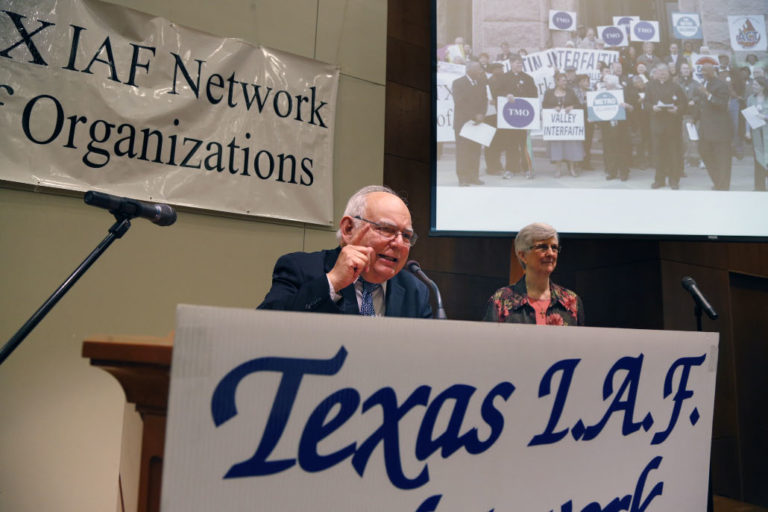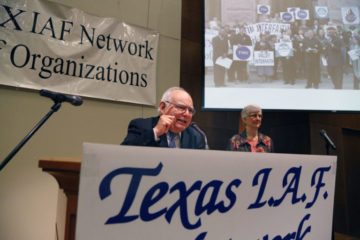
The Grassroots Grow Up: Texas Industrial Areas Foundation Turns 40

A version of this story ran in the July 2016 issue.

In 1974, after years of organizing in the Midwest, Ernie Cortés returned to his hometown of San Antonio, where he saw, now with the eyes of a seasoned activist, the consequences of a political system rife with cronyism. The west and south sides of the city lacked basic infrastructure, such as drainage and sidewalks, while the booming northern part of the city saw new development and economic investment by city leaders and businesspeople. The minority voices of San Antonio were ignored, Cortés remembers, and the poor neighborhoods overlooked.
To fix the problems he saw running rampant in his hometown, Cortés turned to the churches. And out of gatherings with parishioners came COPS/Metro Alliance, a church-based grassroots group that went on to transform San Antonio politics.
“The power structure was mostly, but not exclusively, comprised of white males,” Cortés said of 1970s San Antonio. “They wanted to keep the town fairly focused on tourism. … What we did was kind of disrupt [the power structure] a little.”
During a tour in May, four organizers showed off some of COPS’ accomplishments: a glittering new H-E-B where a rat-infested store once stood, new sidewalks, libraries, and proper drainage on streets that used to hold water for days after storms. The organization also helped lead a successful living-wage campaign for city, county and school district employees.
COPS/Metro eventually grew into the Texas Industrial Areas Foundation (Texas IAF), a network of 14 COPS-inspired organizations across the state with the goal of building political power among the poor and disenfranchised.
This year, Texas IAF celebrates 40 years. The basic organizing model — with its roots in the Saul Alinsky school of community organizing — remains the same. Texas IAF organizers work to identify and develop leaders from within communities, empowering them to draw on their self-interests, fight for their own communities and build power from within. While other organizing outfits tend to focus exclusively on civic engagement in neighborhoods or galvanize around the candidate du jour, Texas IAF members look to existing institutions, such as churches, to build political power.
“Institutions already have some standing, a recognition and power in the community,” said lead COPS organizer Jorge Montiel. “If we’re going to organize for power, might as well start with those that already have it.”
After decades of focusing on the big cities, Texas IAF members are turning their attention to parts of the state that have seen scant community organizing — suburbs, exurbs and small towns. The network hopes to raise $2.5 million over the next two years to reach places such as north San Antonio, Bastrop, Kingsville, Victoria and Corpus Christi.
Texas IAF leaders said the expansion affords the group a chance to build momentum in conservative legislative districts where there is little counterbalance to right-wing political forces. It also puts them in a position to defend local victories, such as city ordinances regulating payday loans and establishing living wages.
“If we do it, and we do it well, it will undoubtedly create more opportunities to then be a player statewide,” Montiel said. “We can’t ignore the fact that what happens at the Legislature affects more of what we do on the local level.”


